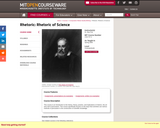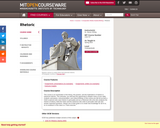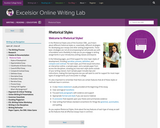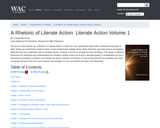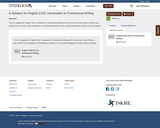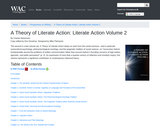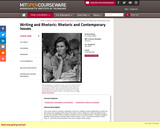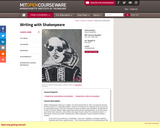
This is a textbook that was originally designed for a 3000-level large lecture course on “Rhetorical Theory” at the University of Minnesota, Twin-Cities. An interdisciplinary tradition, rhetorical theory describes how speech, representation, and power are managed by techniques and technologies of communication. The plan of this book moves from rhetoric as an art of speech to rhetoric as a technology of power. The early chapters provide definitions and context for rhetoric as speech, middle chapters (e.g., on signs, symbols, visual images, argumentation, and narrative) describe rhetoric as representation, and the concluding chapters (e.g., on settler colonialism, secrecy, and digital rhetoric) elaborate on rhetoric as a technology of power. Of course, there is considerable overlap across these areas: the chapter on “rhetoric and ideology” sets the stage for later understandings of rhetoric as power; the chapter on “the rhetorical situation” hearkens back to the introductory understanding of rhetoric as speech. The book includes (audio and/or video) recordings with each chapter, as well as guidelines for proposed written assignments. Students using this resource should gain a thorough understanding of what rhetoric is, how it was practiced historically and today, and the ways that rhetoric wields an invisible influence over contemporary public and political life. Additionally, this book is designed for use across a variety of modalities, including in-person, online (synchronous/asynchronous), and hybridized formats. Additional resources (PowerPoint slides, quiz/exam questions) are also available to confirmed instructors upon request.
- Subject:
- Composition and Rhetoric
- Literature and Composition
- Material Type:
- Textbook
- Provider:
- University of Minnesota
- Provider Set:
- University of Minnesota Libraries Publishing
- Author:
- Atilla Hallsby
- Date Added:
- 08/11/2022
